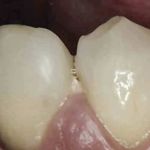- 1-Common-Symptoms-of-Tooth-Sensitivity
- 2-Underlying-Causes-That-Trigger-Sensitivity
- 3-How-to-Recognize-Tooth-Sensitivity-in-Daily-Life
- 4-Case-Study-Real-Life-Experience-with-Tooth-Sensitivity
- 5-Professional-Advice-for-Managing-Tooth-Sensitivity
- 6-Preventive-Measures-to-Protect-Your-Teeth
1. Common Symptoms of Tooth Sensitivity
Tooth sensitivity can manifest in various ways, but certain symptoms stand out as clear signs. Typically, individuals experience sharp, sudden pain when their teeth come into contact with hot, cold, sweet, or acidic foods and drinks. This discomfort can last for seconds or linger longer, often discouraging people from enjoying certain meals or beverages.
Beyond temperature triggers, even brushing or flossing can cause tenderness or aching sensations. The pain often feels localized to one or several teeth rather than a general mouth discomfort. These symptoms are crucial to recognize early because they hint at underlying dental issues that require attention.
Understanding these common signs is the first step toward addressing tooth sensitivity effectively. Ignoring the symptoms can lead to worsening discomfort and potential dental complications, making awareness an essential part of oral health care.
2. Underlying Causes That Trigger Sensitivity
Several factors contribute to tooth sensitivity, each affecting the tooth structure differently. One frequent cause is enamel erosion, where the protective outer layer thins due to acidic foods, aggressive brushing, or even acid reflux. When enamel wears down, the dentin underneath becomes exposed, allowing stimuli to reach nerve endings more easily.
Gum recession is another common culprit. When gums pull back, the tooth roots, which lack enamel protection, become vulnerable to temperature changes and irritants. Additionally, cracked or chipped teeth and worn fillings can expose sensitive inner layers.
Some dental procedures, such as whitening treatments or professional cleanings, might temporarily increase sensitivity. Recognizing these causes helps in tailoring treatments and preventive strategies, especially for those prone to sensitivity.
3. How to Recognize Tooth Sensitivity in Daily Life
Identifying tooth sensitivity in everyday routines is often straightforward but requires mindfulness. For example, a common scenario is experiencing a sudden sting when sipping iced coffee or biting into cold fruit. Similarly, brushing teeth with a new toothpaste or after dental work may provoke unexpected discomfort.
Another subtle indicator is avoiding certain foods or drinks to prevent pain, which might signal underlying sensitivity. Some people also notice increased sensitivity after consuming acidic sodas or citrus fruits. Paying attention to these behavioral changes and physical reactions can prompt timely dental consultation.
Visitors to Dentistry Toothtruth can find detailed resources on recognizing subtle signs and understanding when to seek professional advice, empowering users to maintain healthier teeth and minimize sensitivity impacts.
4. Case Study: Real-Life Experience with Tooth Sensitivity
Consider the story of Mark, a 35-year-old who loved iced drinks and frequently enjoyed citrus fruits. Over time, Mark began noticing sharp pain in several teeth whenever he consumed cold beverages. Initially, he dismissed it as minor discomfort but soon found himself avoiding many of his favorite foods.
After visiting his dentist, Mark learned that enamel erosion and slight gum recession were causing his sensitivity. With professional advice and switching to a toothpaste designed for sensitive teeth, his discomfort reduced significantly within weeks. Mark’s story highlights how common lifestyle habits contribute to sensitivity and the benefits of early intervention.
Stories like Mark’s are common and underscore the importance of recognizing the signs of tooth sensitivity before they impact daily life drastically. The Dentistry Toothtruth website offers similar real-life insights and product recommendations tailored to sensitive teeth.
5. Professional Advice for Managing Tooth Sensitivity
Dentists recommend several effective approaches to manage tooth sensitivity depending on the cause and severity. Using toothpaste formulated for sensitive teeth is often the first line of defense, as these contain ingredients that block transmission of sensation from the tooth surface to the nerve.
In more severe cases, professional treatments like fluoride varnishes, bonding agents, or dental sealants may be applied to strengthen enamel and protect exposed dentin. Avoiding aggressive brushing and choosing soft-bristled toothbrushes also prevent further enamel wear and gum damage.
Consulting with dental professionals ensures personalized care. Dentistry Toothtruth provides guidance on choosing the best products and services to fit individual needs, enhancing treatment outcomes and patient comfort.
6. Preventive Measures to Protect Your Teeth
Prevention is always better than cure when dealing with tooth sensitivity. Maintaining good oral hygiene without over-brushing, reducing intake of acidic and sugary foods, and using a fluoride mouth rinse regularly can significantly reduce sensitivity risk.
Wearing a mouthguard during sports or if you grind your teeth at night protects enamel from damage. Routine dental checkups enable early detection and management of issues that lead to sensitivity.
The Dentistry Toothtruth website is an excellent resource for learning preventive techniques and accessing recommended products that help keep teeth strong and less sensitive over time.







 North Columbus Dental Group5.0 (2 review)
North Columbus Dental Group5.0 (2 review) Monarch Dental & Orthodontics4.0 (557 review)
Monarch Dental & Orthodontics4.0 (557 review) Bob and Peg's Dental5.0 (4 review)
Bob and Peg's Dental5.0 (4 review) Corner Dentistry4.0 (42 review)
Corner Dentistry4.0 (42 review) Midlothian Family Dentistry4.0 (649 review)
Midlothian Family Dentistry4.0 (649 review) River Run Dental4.0 (356 review)
River Run Dental4.0 (356 review) The Importance of Oral Health Education During Pregnancy for a Healthy Pregnancy
The Importance of Oral Health Education During Pregnancy for a Healthy Pregnancy Best Tips for Brushing Your Teeth Properly for Healthy Gums: Essential Techniques for Oral Health
Best Tips for Brushing Your Teeth Properly for Healthy Gums: Essential Techniques for Oral Health Why Skipping Dental Checkups Can Lead to Bigger Oral Health Problems
Why Skipping Dental Checkups Can Lead to Bigger Oral Health Problems Advantages of Porcelain Dental Restorations
Advantages of Porcelain Dental Restorations How Can Diabetes Cause Tooth and Gum Problems? Preventing and Managing Oral Health Issues
How Can Diabetes Cause Tooth and Gum Problems? Preventing and Managing Oral Health Issues Healthy Habits for Promoting Good Oral Health and Hygiene: Tips for a Healthy Smile
Healthy Habits for Promoting Good Oral Health and Hygiene: Tips for a Healthy Smile